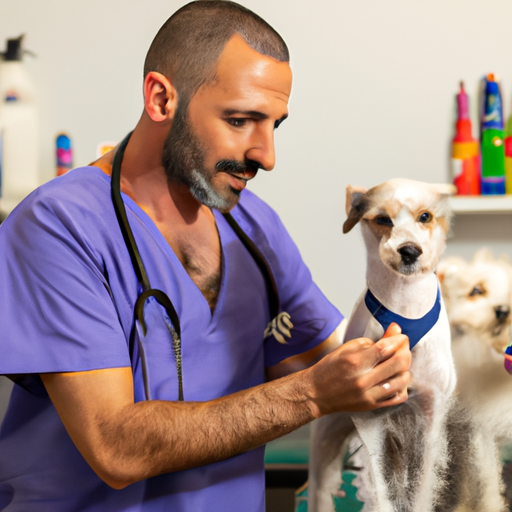Understanding Pet Vaccination Schedules
Before we delve into specifics, it’s important for you, as a dedicated caregiver, to understand the general framework of pet vaccination schedules. Just like human babies, puppies also need a series of shots in their first year. The American Animal Hospital Association (AAHA) divides these shots into two categories:
- Core vaccines: These vaccines are essential for all dogs because they protect against diseases that are extremely severe or deadly.
- Non-core vaccines: These vaccines are optional and depend on the dog’s lifestyle and geographical location.
The First Year of a Puppy’s Life: A Crucial Time for Vaccinations
Puppies are typically given their first set of shots at around 6 to 8 weeks old. This is usually a combination shot that includes vaccines against distemper, measles, and parainfluenza. After the initial shot, the puppy should return for boosters every 3 to 4 weeks until they are about 16 weeks old.
| Age | Vaccination |
|---|---|
| 6 – 8 weeks | Distemper, measles, parainfluenza |
| 10 – 12 weeks | DHPP (vaccines for distemper, adenovirus, parainfluenza, and parvovirus) |
| 12 – 24 weeks | Rabies |
| 14 – 16 weeks | DHPP |
Adult Dogs: Maintaining Their Health with Regular Boosters
Once your dog reaches adulthood (which can be anywhere from 1 to 2 years old depending on the breed), they will need fewer shots. However, they will still require regular boosters to maintain their immunity. Common boosters include:
- DHPP: Every 1 to 2 years
- Rabies: Every 1 to 3 years
- Non-core vaccines (e.g. Bordetella, Lyme disease, Leptospirosis): Depending on lifestyle and geographical location
The Golden Years: Caring for Your Senior Dog
As your dog ages, their vaccination needs may change. Some older dogs might not need certain vaccines anymore, while others might need additional vaccines to protect them from age-related diseases. Always consult with your vet to determine the best vaccination schedule for your senior dog.
Keeping Track of Your Dog’s Vaccination Schedule
Keeping track of your dog’s vaccination schedule can be a daunting task, but it’s an essential part of being a responsible pet owner. Consider using a pet health app or a simple calendar to remind you of upcoming vet appointments.
Frequently Asked Questions
Q: Can I give my dog vaccines at home?
A: While some vaccines can be administered at home, it’s always best to consult with a vet first.
Q: What happens if my dog misses a vaccine?
A: If your dog misses a vaccine, they may be at risk for certain diseases. Contact your vet as soon as possible to arrange for a catch-up shot.
Q: Are there side effects to vaccines?
A: Some dogs might experience mild side effects after vaccination, such as soreness at the injection site or a mild fever. If your dog seems seriously unwell after a shot, contact your vet immediately.
Q: Do indoor dogs need vaccines?
A: Yes, even indoor dogs need vaccines. Diseases like rabies and distemper can be transmitted through open windows or when your dog goes out for walks.
Q: Can vaccines make my dog sick?
A: Vaccines expose your dog to a safe version of a disease to build their immunity. While this can sometimes lead to mild symptoms, vaccines will not give your dog the actual disease.
Remember, vaccinating your dog is a vital part of ensuring their long-term health. Always consult with a trusted vet to create the ideal vaccination schedule for your furry friend.



